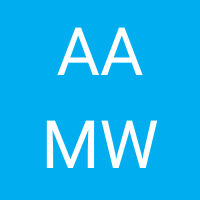One-Size-Fits-None: How Federal Testing Policies Undermine Student Learning
Topics

Educators are rethinking the purposes, forms, and nature of assessment. Beyond testing mastery of traditional content knowledge—an essential task, but not nearly sufficient—educators are designing assessment for learning as an integral part of the learning process.
We need an assessment and accountability system that supports students at their unique starting points and trajectories, with civil rights guardrails to prevent inequalities.
Many federal efforts to reform education in the U.S. have wonderful intentions but are inadvertently built to fail. A glaring example is the stagnation in creating innovative summative assessments that truly promote student learning. For many years, we’ve seen states struggle to work around rigid, outdated federal testing statutes that conflict with the vision for fostering high-quality designs, even when those statutes attempt to usher in innovation.
So, what’s the problem? Current federally mandated annual state tests for grades 3-8 and once in high school are governed by a system that assumes all students begin on equal footing and progress at the same pace, a presumption that couldn't be further from reality. This one-size-fits-all approach shifts focus from meaningful instruction to springtime cramming for standardized tests, regardless of whether students have mastered critical skills. While we agree that standards are essential to guide students toward college and career readiness, the focus must be on ensuring each student makes meaningful progress. Rigid annual testing often forces students to move ahead without the building blocks needed for later success. This is especially detrimental in subjects like algebra or reading comprehension, where early gaps can prevent students from reaching key milestones. When we don't support students at their unique starting points, we leave them unprepared for the critical academic challenges ahead. Instead of assuming every student is on the same path, we should be measuring progress toward those long-term goals, focusing on what students really need to succeed.
These summative tests were meant to improve how schools measure student learning and hold schools accountable if their students didn’t score well enough. While they did spur some much-needed gains and helped highlight educational inequities, they have devolved into compliance exercises rather than tools for learning. Meanwhile, we now have the capacity to measure every student’s learning journey more precisely—if only federal laws would allow it.
Rigid annual testing often forces students to move ahead without the building blocks needed for later success.
Legislative Attempts and Continued Challenges
As education policymakers who worked for education departments in small states (Delaware and South Dakota) and led assessment as part of our teaching and learning portfolios, we were especially hopeful about the Innovative Assessment Demonstration Authority (IADA) introduced in the 2015 Every Student Succeeds Act. The pilot program promised flexibility to develop innovative assessment systems to better measure student progress, but there were immediate challenges with the program.
When we looked under IADA’s hood, we realized not much had changed with the flexibility. IADA projects still needed to match and meet the same rigid academic assessment and statewide accountability system requirements. It came without any funding and required states to continue to abide by testing requirements that disincentivized a truly student-centered assessment system. Faced with these challenges, we both decided to pass on the opportunity.
To their credit, a few states took the plunge anyway. But their efforts were often uphill battles, and the pandemic made the road even steeper. Even those IADA programs that aimed to prioritize measuring student learning throughout the year ultimately fell short, as they were forced to comply with rigid federal guidelines, preventing meaningful innovation; to date, no assessment system has truly managed to break free from these constraints and make the transformative changes needed. By 2021, IADA was on life support, with dwindling state interest and many early adopters either abandoning or pausing their plans. In 2023, no states applied to be part of the pilot.
The U.S. Department of Education sought to fix IADA in early 2023, and education stakeholders across the country sent in thousands of comments calling for more flexibility in assessments. But when the department announced updates in November 2023, states were once again frustrated. As of this spring, not a single state applied for the revised program. The Department of Education claims its hands are tied: without Congressional action to overhaul federal education law, standardized testing in its current form will remain the status quo.
When we don't support students at their unique starting points, we leave them unprepared for the critical academic challenges ahead.
Turning Disappointment into Progress: Looking Ahead to the Next Big Opportunity
Our disappointment arises not just from missed opportunities but from broken promises. We pledged to provide every student with an education that prepares them for college, careers, and life. Yet, our current system fails to recognize the unique starting points and trajectories of individual learners. Worse, it often exacerbates inequalities, especially in underserved communities, where annual tests become punitive measures rather than tools for growth.
We need a fresh approach, one that IADA was meant to facilitate but ultimately did not deliver. State assessments should do more than just test—they should inspire and support learning. Teachers should be encouraged to meet students where they are, whether that means filling learning gaps or advancing students who are ready. The system should support, not hinder, these efforts. Does that mean lowering the bar? Absolutely not. It means creating a flexible, innovative system that recognizes and builds on each student’s progress, acknowledging mastery of concepts and preparing them for the next challenge as each student runs their race to college and career readiness.
The next big opportunity for change is still a few years away. Lawmakers on the Hill have said they aren’t ready to re-open the entire federal education law. Meanwhile, the U.S. Department of Education maintains that it cannot give states any more flexibility without violating federal law.
But the time to start building a bridge toward that change is now. Creating flexibility for states to demonstrate how student-centered innovative approaches can work will be crucial for shaping the next iteration of the law. We believe the conversation has to start with two important principles.
- First, states need an alternative permission structure in IADA to truly create, implement, and evaluate competency-based assessment and accountability systems within the current framework.
- Second, assessment systems must maintain important civil rights guardrails to ensure we know how all students are performing.
Moving forward requires a renewed commitment to our students and our nation's future. Let's move past our assumptions of what has always been and build a system that truly serves every learner, one assessment at a time.
Photo at top by Andy Barbour.




